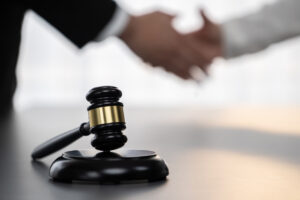Tips for Conducting a Productive Deposition

In the realm of legal proceedings, deposition stands as a critical juncture, offering both parties a preview of witness testimonies and evidentiary direction before trial. A well-conducted deposition can not only provide valuable insights but also strategically position a case for negotiation or trial. For legal professionals seeking to maximize the efficacy of depositions, a focused approach entwined with meticulous preparation and adept questioning techniques is indispensable. Amidst the formal setting of a deposition, lawyers must balance thoroughness with efficiency, ensuring they extract pertinent information while maintaining a clear, strategic line of questioning. Understanding both the subtleties of legal interplay and the human element involved, from the witness’s demeanor to their capacity for recall, becomes essential in navigating these proceedings effectively. In the spirit of fostering both clarity and depth in legal inquiry, we explore a series of tips designed to enhance the productivity of depositions, ensuring that each session contributes significantly to the overarching legal strategy.
Effective Preparation: The Bedrock of a Productive Deposition
In the meticulous realm of legal proceedings, preparation emerges as the bedrock upon which a productive deposition rests. For attorneys, this entails not just a familiarity with the facts of the case but an intimate understanding of the deposition’s broader strategic objectives. Crafting a detailed outline of topics and questions is paramount, allowing legal professionals to guide the deposition deliberately and prevent it from derailing. Furthermore, reviewing prior testimonies and documents linked to the witness can unearth areas for exploration or challenge, equipping attorneys with the ammunition needed to probe inconsistencies or corroborate facts. It’s also advisable to anticipate potential defenses and prepare counter-questions, ensuring a comprehensive examination. Technology, such as litigation support software, can aid tremendously in organizing and accessing necessary information efficiently during the deposition. In essence, thorough preparation sets the stage for a deposition that not only garners essential information but also aligns seamlessly with the case’s overall legal strategy.
Mastering the Art of Questioning
A crucial aspect of conducting a productive deposition lies in mastering the art of questioning. Effective questioning is not merely about asking the right questions but doing so in a manner that encourages the witness to provide comprehensive and candid responses. Open-ended questions can be particularly valuable in this context, as they compel the witness to narrate their account, potentially revealing more than they intended. Conversely, closed-ended questions should be strategically deployed to confirm specific details or elicit yes-or-no answers when clarifying facts is necessary. It’s essential for attorneys to listen actively to the answers provided, as this can lead to follow-up questions that further illuminate the matter at hand. Additionally, maintaining a calm and respectful demeanor, regardless of the witness’s responses, ensures that the deposition environment remains conducive to gathering useful information.
Leveraging Technology to Enhance Depositions
In today’s digital age, leveraging technology can significantly enhance the productivity of depositions. Video conferencing tools, for example, enable depositions to be conducted remotely, saving time and resources while still allowing attorneys to observe witness demeanor and body language. Digital recording devices and transcription services ensure that every word spoken during the deposition is accurately captured and can be easily referenced later. Furthermore, employing case management allows attorneys to organize and access pertinent documents quickly, facilitating a smoother questioning process. By integrating these technological solutions, law firms can conduct more efficient and effective depositions, regardless of geographical constraints.
Creating a Conducive Environment
The setting in which a deposition takes place can have a significant impact on its productivity. Ensuring a neutral, comfortable, and private environment is crucial for facilitating open and uninterrupted dialogue. Distractions should be minimized to maintain focus, with all necessary legal and technological tools readily accessible. It’s also beneficial to establish ground rules at the beginning of the deposition, such as speaking one at a time and allowing the witness to complete their answers. This helps in maintaining order and respect throughout the proceeding, ultimately contributing to a productive deposition.
Post-Deposition Strategy
After the deposition concludes, the productivity of the session is further influenced by the subsequent analysis and application of the information obtained. Promptly reviewing the transcripts and recordings to identify key pieces of testimony and any discrepancies with previous statements is vital. Collaborating with the legal team to assess how this new information impacts the case strategy can lead to more informed decisions moving forward. Additionally, considering whether follow-up depositions are necessary and planning accordingly ensures that the momentum generated by the initial deposition is not lost.
Conclusion
Conducting a productive deposition is a multifaceted process that requires thorough preparation, strategic questioning, technological integration, and post-deposition analysis. By adhering to these principles, legal professionals can maximize the value of depositions, gathering critical information that strengthens their case and positions them favorably for negotiations or trial. At Talty Court Reporters, we utilize the latest technology to deliver the very best results in your legal case. Turn to us for top-quality court reporting and transcribing services, video and audio conferencing, and remote depositions in San Jose, CA. For additional information about our services or to request a cost estimate, please contact us today.